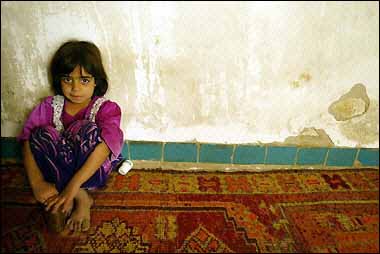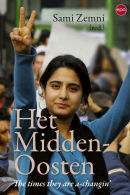(06-05-2013) Situation of children in Iraq 'a neglected crisis'
(29-04-2013) Immediate Release : Report of a Fact Finding Mission on Congenital Birth Defects in Fallujah, ...
(17-03-2013) the shame of the war
(27-11-2012) Women, Men and Children Are Routinely Tortured and Raped in Iraqi Prisons. The Perpetrators ...
(25-11-2012) Iraq’s unveiled women face rising crackdown
(06-05-2013) Situation of children in Iraq 'a neglected crisis'
(29-04-2013) Immediate Release : Report of a Fact Finding Mission on Congenital Birth Defects in Fallujah, ...
(06-04-2013) 1,000,000 Kids Impacted by Mines in Iraq
(27-03-2013) NIET IN ONZE NAAM !
(12-03-2013) UN Human Rights Reports March 2024
(27-03-2013) NIET IN ONZE NAAM !
(12-03-2013) UN Human Rights Reports March 2024
The BRussells Tribunal is independent and wants to remain independent.
The BRussells Tribunal is an activist think tank and peace organisation with a special focus on Iraq. Read more...


 The times they are a-changin' is het eerste grondige Nederlandstalig overzicht dat voorbij oppervlakkigheden en algemeenheden wandelt, en ook nog eens de hele regio bestrijkt, van Egypte en Tunesië tot Marokko, Libië, Syrië, Libanon, Palestina, Jemen, Jordanië, Irak, Bahrein en Israël. Daar bestaat een woord voor: een standaardwerk.
The times they are a-changin' is het eerste grondige Nederlandstalig overzicht dat voorbij oppervlakkigheden en algemeenheden wandelt, en ook nog eens de hele regio bestrijkt, van Egypte en Tunesië tot Marokko, Libië, Syrië, Libanon, Palestina, Jemen, Jordanië, Irak, Bahrein en Israël. Daar bestaat een woord voor: een standaardwerk.